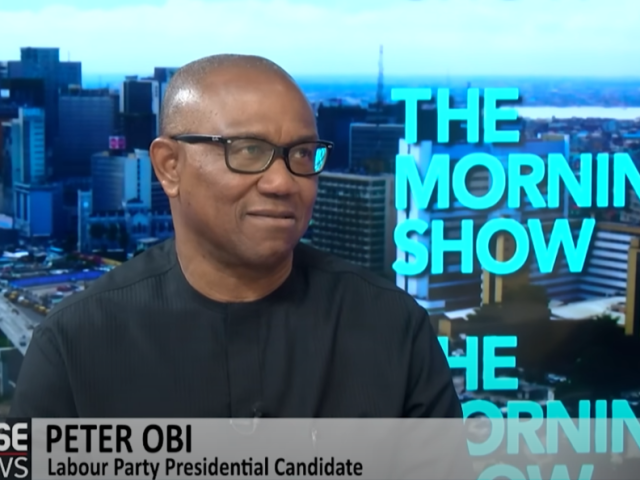Nigeria jumped 40 places on the global ease of doing business rankings under Muhammadu Buhari, a supporter of the country’s outgoing president said in a March 2023 tweet.
“Good News. Under the leadership of President Buhari, Nigeria moved 40 spaces in the ranking of Ease of Doing Business,” the 23 March tweet read.
The user attributed the claim to Nigeria’s minister of industry, trade and investment, Adeniyi Adebayo.
The quote appears on a graphic in a series designed and shared by the country’s information ministry, as part of its #PMBScorecard series celebrating Buhari’s achievements.
PMB is a popular acronym for president Muhammadu Buhari, who will hand over power on 29 May to his successor, Bola Ahmed Tinubu, also of the ruling All Progressives Congress.
Buhari was first elected in 2015. But has Nigeria moved up 40 places in the ease of doing business rankings since then?
World Bank report discontinued from 2020, to be replaced in 2023
The Doing Business report was published by the World Bank from 2003 to 2020. Its aim was to analyse regulation that “encourages efficiency and supports freedom to do business”, or how friendly an economy is to investors.
The report’s closely watched “ease of doing business” index ranked countries, based on 12 regulatory areas.
These were:
- Starting a business
- Dealing with construction permits
- Availability of electricity
- Process and cost of registering property
- Getting credit and loans
- Protecting minority investors
- Paying taxes
- Cross-border trading
- Enforcing contracts
- Resolving insolvency
- Employing workers
- Contracting with the government
The report described an economy’s scores on these indicators as “somewhat akin to a measure of concentrations of various proteins and minerals in the human blood”.
“They may not seem important to the lay observer, but they have huge long-run implications for an economy’s health, performance and growth.”
However, in 2021, the World Bank discontinued the report, due to what it said were “data irregularities” that affected the 2018 and 2020 reports.
Experts also criticised the rankings. For example, the rankings “did not necessarily reflect what actually happens in practice and there may be large divergence in some cases between formal law and what takes place on the ground”, as Prof Gerard McCormack told Africa Check in 2020.
In 2018 McCormack wrote a paper titled Why “Doing Business” with the World Bank May Be Bad for You.
The lender has since announced that the Doing Business report will be replaced by the Business Ready report. The methodology for how this new report will be produced will be published by April 2023, it said.
Nigeria climbed 38 places under Buhari
So how did the Buhari administration fare in the available ease of doing business rankings?
In the 2015 report, which was benchmarked to June 2014, Nigeria scored 47.33, placing it 170th out of 189 countries.
The 2016 ranking was benchmarked to June 2015, Buhari’s first month in office. In that year, Nigeria scored 44.69 points and was ranked 169th out of 189 countries.
The flawed 2020 report, the last of the rankings, was benchmarked to May 2019. In that ranking, Nigeria scored 56.9 points, and was ranked 131st out of 190 countries. Somalia had the lowest score.
| Nigeria’s ranking on ease of doing business index | ||
| Year | Ranking /Number of countries ranked | Score |
| 2015 | 170/189 | 47.33 |
| 2016 | 169/189 | 44.69 |
| 2017 | 169/190 | 44.63 |
| 2018 | 145/190 | 52.03 |
| 2019 | 146/190 | 52.89 |
| 2020 | 131/190 | 56.9 |
Source: Doingbusiness.org
A ranking hasn’t been published since 2020, following criticism of the way it was compiled. However, data from 2016 to 2020 shows that Nigeria improved by 38 places.





Add new comment